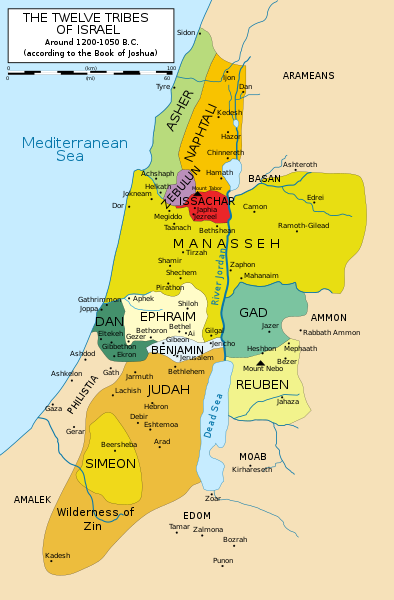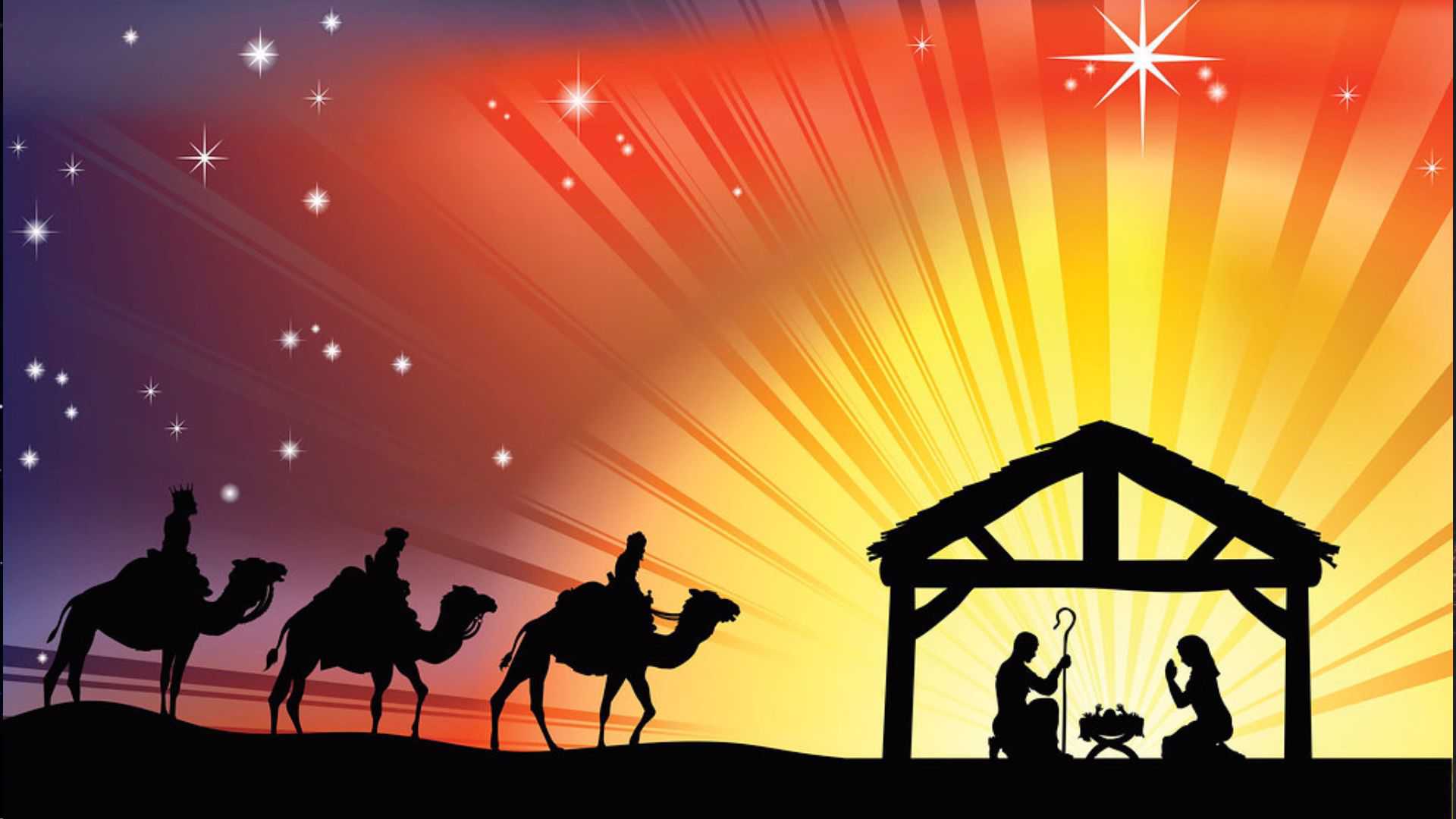The celebration of Jesus’ (PBUH) birth on December 25 has been a longstanding tradition in Christianity. But the question remains Was Jesus born on December 25? What is the historical and religious evidence? A closer examination of historical and religious references, including insights from the Islamic perspective, reveals a complex tapestry of factors challenging the widely accepted belief in the December birth of Jesus Christ (Isa A.S.). This article tries to answer the question: “Was Jesus born on December 25?” and explores key aspects, including Mother Mary (PBUH) seeking refuge by a palm tree, the climatic incongruence with winter, the historical context of the census under Caesar Augustus, the biblical verse Luke 2:8, and the potential influence of pagan festivals on the chosen date.
The birthdate of the Messiah [of Nazareth] is assumed by Christian history to have been December 25. Luke tells us that Caesar Augustus had ordered a census to be held at the time, and Joseph and Mary (PBUH) traveled from Nazareth to Bethlehem for it. This is where Jesus (PBUH) was born on December 25, in Bethlehem, during the first Jewish census that Caesar Augustus ordered to be held [refer Luke 2:1–6].
But according to the Holy Quran, Jesus (PBUH) was born during the date-ripening season. It is not December that the dates ripen, but rather July and August.
Furthermore, we learn that Mary (PBUH) was also informed by God Almighty of a stream of water where she might clean the [newly born] infant and wash herself.
This leads us to believe that it was perhaps July or August, as it would have been unwise to bathe herself and the child at the stream in such chilly December weather, particularly in a mountainous area of North Arabia.

Mary (PBUH) and the Palm Tree:
The Quranic narrative in Surah Maryam recounts the extraordinary story of Mary giving birth to Jesus (PBUH) under a palm tree:
وَهُزِّيۡۤ اِلَيۡكِ بِجِذۡعِ النَّخۡلَةِ تُسٰقِطۡ عَلَيۡكِ رُطَبًا جَنِيًّا
“And shake the trunk of this palm tree towards you, it will drop fresh, ripe dates upon you.”
[Holy Quran 19:25]
This event has captured the attention of scholars, who note the significance of palm trees bearing fruit in warmer months. The winter season, associated with December, presents a climatic incongruence that prompts a reevaluation of the chosen date for Jesus’ (PBUH) birth. Thus it is a clear indication that Jesus (Isa A.S.) was not born in December.
However, according to Christian tradition, Jesus (PBUH) was born in December. Even if we agreed with this for the purpose of debate, there would still be the problem that the Holy Quran says [that the angel asked] Mary (PBUH) to shake the palm tree, and ripe dates will drop down.
Therefore, the question of why the Quran included dates while dates do not mature in that season arises if it is true that Jesus (PBUH) was born in December.
The scholars [of the Holy Quran] have stated that Mary (PBUH) approached the date palm to receive support for her agonizing condition, so avoiding this question. Speculators pondered, “Given that Christians claim Jesus (PBUH) was born in December, how come Mary (PBUH) approached the barren date palm when it is highly improbable that dates would ripen in December?” They responded by assuming that because of her painful condition, she went to the date palm for support.
They failed to consider, though, that the Holy Quran also says, “And shake towards thyself the trunk of the palm-tree; it will cause fresh ripe dates to fall” [Quran 19:26] in the next verse:
فَكُلِيۡ
“So, eat” [Quran 19:27].
They believed she approached the barren date palm merely to receive support for her agonizing condition since they were influenced by the Christian belief that Jesus (PBUH) was born in December and the fact that date palms are not ripe during that time of year. Nevertheless, after considering the meaning of تُسٰقِطۡ عَلَيۡكِ رُطَبًا جَنِيًّا and فَكُلِيۡ, some commentators opined that it was miraculous that fresh dates fell upon her after shaking the infertile date palm.
Climatic Incongruence:
Palm trees, prevalent in the Middle East, where Bethlehem is situated, are known to bear fruit in warmer seasons. December, characterized by cold temperatures, is not conducive to the ripening of palm fruits. This climatic incongruence prompts a reconsideration of whether the winter month aligns with the natural conditions described in the Quranic narrative and challenges the traditional concept of Jesus’s (PBUH) Birth on December 25 birth.
The second cause of concern is the fact that this occurrence occurred in Judea. Biblical records tells us that grapes, almonds, and olives were found in that region, but it makes no mention of dates. The Holy Quran specifies the dates. Oddly enough, December isn’t the season for olives, grapes, or almonds.
Let’s now examine whether the date palms were there in the regions that the Gospels claim Jesus (PBUH) was born in. In this regard, a study of the Bible reveals that it attests to the existence of date palms in that region. Thus, it says
The descendants of Moses’ father-in-law, the Kenite, went up from the City of Palms with the people of Judah to live among the inhabitants of the Desert of Judah in the Negev near Arad.
[Judges, 1:16]

Date palms were undoubtedly present in the vicinity of Bethlehem because Arad, which is referenced in this passage, is around 100 miles from Bethlehem and the City of Palms was located to the north of Arad. Furthermore, date palms might very well exist in the region of Judea, where Bethlehem is situated, because it is connected to Arabia.
This study has resolved the issue of اِلَيۡكِ بِجِذۡعِ النَّخۡلَةِ, which was the location of the date palms. What remains to be answered, though, is that the Holy Quran claims that the season in which Jesus (PBUH) was born occurred when dates were still connected to palm trees and were both ripe and edible.
Conversely, December is not a season of dates, but Christians believe that Jesus (PBUH) was born in that month.
It must therefore imply that Jesus (PBUH) was born during a time when there were [ripe] dates on palm trees in accordance with the Holy Quran. According to Christian traditions, Jesus (PBUH) was born on December 25, while other people think his actual birthday was in April. It’s important to note that neither December nor April are the Dates ripening season. Dates ripen in August – September.
Census Under Caesar Augustus:
The Gospel of Luke (2:1-7) describes the decree by Caesar Augustus for a census, leading Joseph and Mary (PBUH) to travel to Bethlehem.
In those days Caesar Augustus issued a decree that a census should be taken of the entire Roman world. 2 (This was the first census that took place while[a] Quirinius was governor of Syria.) 3 And everyone went to their own town to register. 4 So Joseph also went up from the town of Nazareth in Galilee to Judea, to Bethlehem the town of David, because he belonged to the house and line of David. 5 He went there to register with Mary, who was pledged to be married to him and was expecting a child. 6 While they were there, the time came for the baby to be born, 7 and she gave birth to her firstborn, a son. She wrapped him in cloths and placed him in a manger, because there was no guest room available for them.
Luke (2:1-7)
Historical analysis, however, indicates that Roman censuses were not typically conducted during winter due to the logistical challenges posed by unfavorable weather conditions. Plus, Roman history does not mention any census during Jesus’s (PBUH) birth year. Luke was incorrect about this census. He mixed up a later census with the birth of Jesus (PBUH). This historical context raises questions about the feasibility of a December census and its implications for the dating of Jesus’ (PBUH) birth.
Luke 2:8 – Shepherds in the Fields:
Luke 2:8 is a pivotal verse that provides insight into the seasonal context of Jesus’ birth:
“And there were shepherds living out in the fields nearby, keeping watch over their flocks at night.”
[Luke 2:8]
Interpreted by scholars, this verse suggests that Jesus’ (PBUH) birth did not occur in the winter months. Because shepherds would not have their flocks in the fields during the cold winter, challenging the alignment of the biblical narrative with the December 25 date.
It was obviously summer, not a bitterly cold winter. In December, Palestine has bitterly cold temperatures accompanied by heavy precipitation and dense fog. Who could believe that the shepherds and their sheep had ventured out onto the fields in such weather? It was definitely a summer month.
Influence of Pagan Festivals:
According to historical accounts, December 25 falls on a number of pagan holidays, including Saturnalia in ancient Rome. This event, which is associated with gift-giving and feasting, precedes the Christian holiday of Christmas. Because these celebrations have been included in the Christian calendar, it is necessary to critically analyze the history of December 25 being the date of birth or not. and if it has been integrated into other cultural traditions.
Islamic Perspective on Jesus’ Birth:
Islamic beliefs, found in the Quran, describe Jesus (PBUH) as a Prophet to be honored and recount the miracles he performed by the will and power of Allah, in his life, right from his birth. Nonetheless, Islamic custom forbids celebrating birthdays, especially those of prophets, and the Quran does not give a precise date for Jesus’ birth. This viewpoint emphasizes the significance of the prophetic message over the observance of any particular date.
Conclusion: Was Jesus born on December 25?
The topic of whether Was Jesus born on December 25th encourages a thorough examination of religious and historical references. The traditional belief in a December birth is called into question by the factors we discussed above. so was Jesus born on December 25? we inferred from these above discussions that Jesus (PBUH) was not born on December 25. Not in winter, but in Summer month. But knowing the real date of birth of Jesus (PBUH) doesn’t really matter. What matters is the Prophetic mission Jesus (PBUH), the Messiah, came with. and it was to spread the message of one God, trust and faith in God, submitting to the will of God because to him we will return.
May Allah Guide us to the truth. and Allah SWT knows best.
Read more Islamic Blogs or Follow us on social media for daily Islamic reminders.






